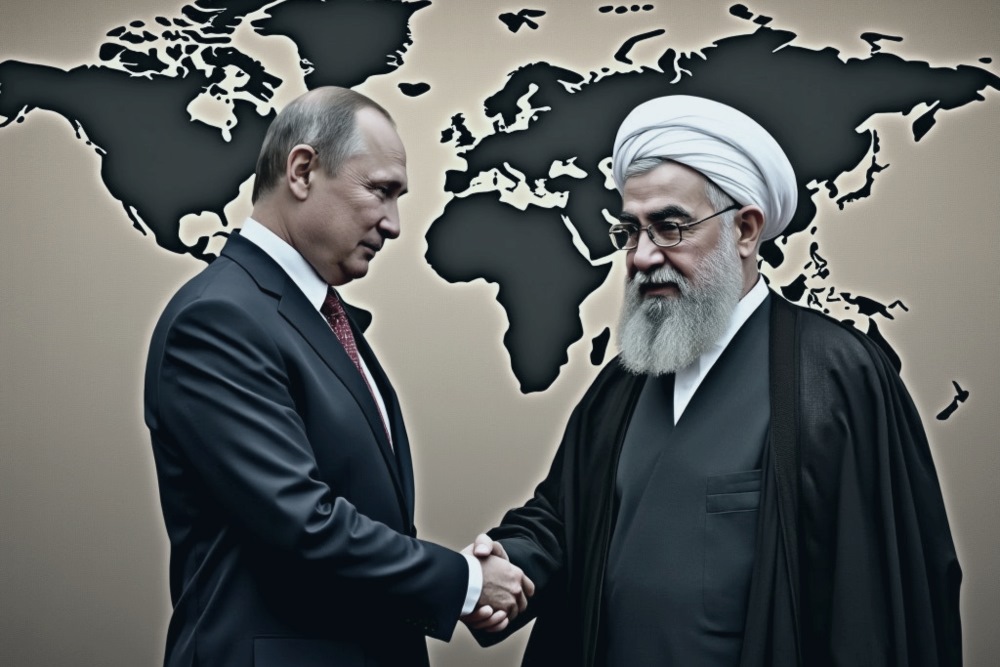
Israel’s strike on Iranian air defenses and missile production sites has the potential to disrupt Tehran’s military alliance with Moscow. The aftermath of the attack raises questions about the durability and value of their strategic cooperation.
The implications are not limited to the bilateral sphere but extend across the Middle East, with possible consequences for Russia’s geopolitical posture.
Early reports indicate that the Israeli strike inflicted significant damage to key missile production facilities in Iran. Tehran’s missile program is not just a critical element of its own defense but also a valuable resource for its international allies, particularly Russia.
Over the past year, Moscow has increasingly relied on Iranian missile and drone supplies to support its war effort in Ukraine, circumventing Western sanctions and filling gaps in its military inventory.
The heavy damage to Tehran’s missile production line will complicate Iran’s ability to replenish its stockpiles, in turn likely delaying future deliveries to Moscow.
This disruption threatens to impair Russian operations in Ukraine at a critical juncture. As the war drags on, Moscow is in dire need of steady arms supplies to maintain its firepower and strike capabilities.
Air defense shortage
The strike also raises another potential issue: Russia’s limited ability to support Iran’s air defenses. Tehran has been leaning on Russia to bolster its air defense systems, particularly with S-300 and potentially S-400 batteries.
Now that Iran reportedly lost several and possibly all of its S-300 systems, it needs urgent help to restore some defenses at critical locations. However, with Russia fully committed on the Ukrainian front, diverting air defense systems to Iran may no longer be an option.
Without these mutual exchanges – missiles from Iran and air defense systems from Russia – the strategic value of the Tehran-Moscow alliance begins to diminish.
Both countries have relied heavily on this transactional relationship to advance their interests, but the interruption in this flow could create new tensions.
While it’s too soon to predict the implications, the new dynamics could hamper Moscow-Tehran relations. If Iran struggles to recover from the blow to its missile industry, Russia may reassess the cost-benefit analysis of its partnership with the Iranian regime.
Geopolitical costs for Russia
These developments could signal a deeper shift in the dynamics between Iran and Russia. With fewer material benefits flowing between them, the fundamental basis for cooperation weakens.
Notably, the Iran-Russia relationship was limited to begin with, largely premised on mutual military support but lacking a truly robust basis.
Moreover, Russia’s long-term ambitions in the Middle East benefited from Iranian support to maintain influence in Syria, Lebanon, and Iraq. If Iran’s regional power wanes, Russia’s ability to achieve gains through Iran’s weakened proxy network will be diminished as well.
A weakened alliance may also affect the ability of Russia and Iran to coordinate anti-Western initiatives, such as military cooperation in Syria. Notably, Moscow’s and Tehran’s interests in the Syrian theater do not fully align as it is. [here’s a detailed report about Iran’s struggle to form true strategic alliances with global powers]
On the other hand, a faltering partnership will leave both countries more isolated on the global stage, thus adding an incentive to maintain close ties. Ultimately, both Tehran and Moscow have multiple factors to consider as they make their next moves.
In the bottom line, Israel’s strike in Iran set off a chain of events that could test the strength of the Moscow-Tehran axis. With both countries under pressure – Russia in Ukraine and Iran across the Middle East – their capacity to support each other may be reaching its limits.
As Iran struggles to recover from the damage and Russia prioritizes its own defense needs, the future of the alliance may be uncertain.


